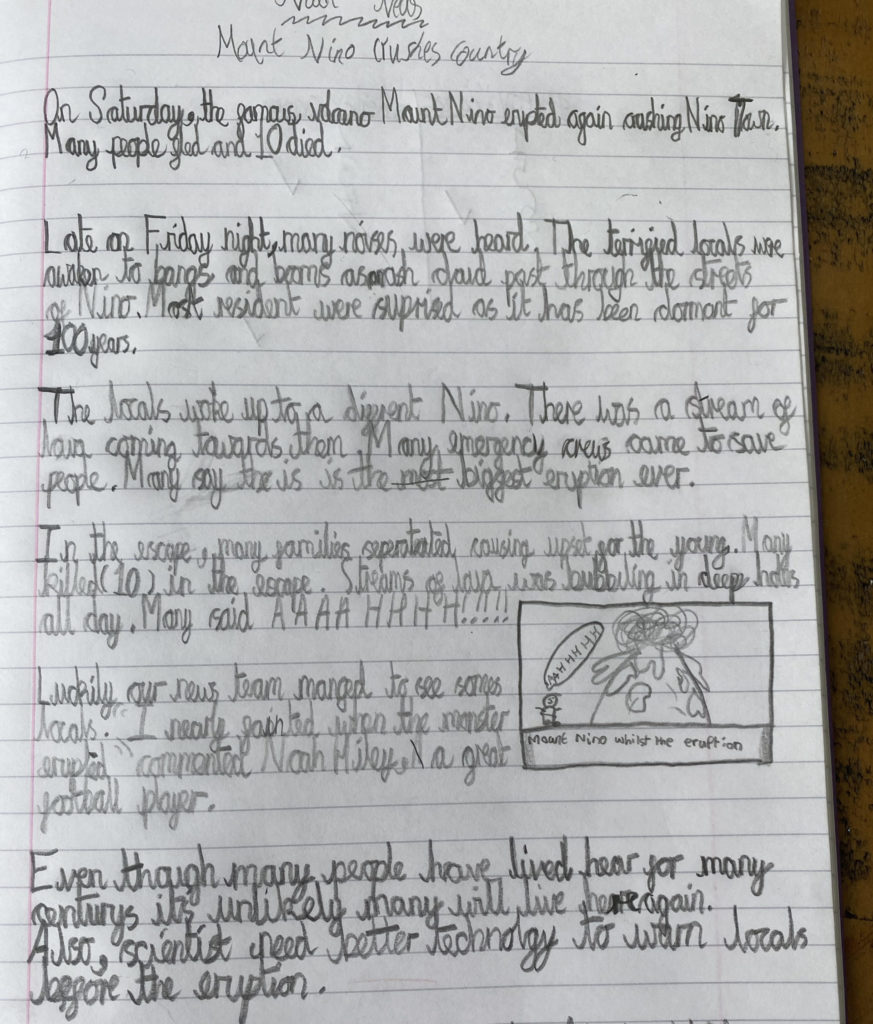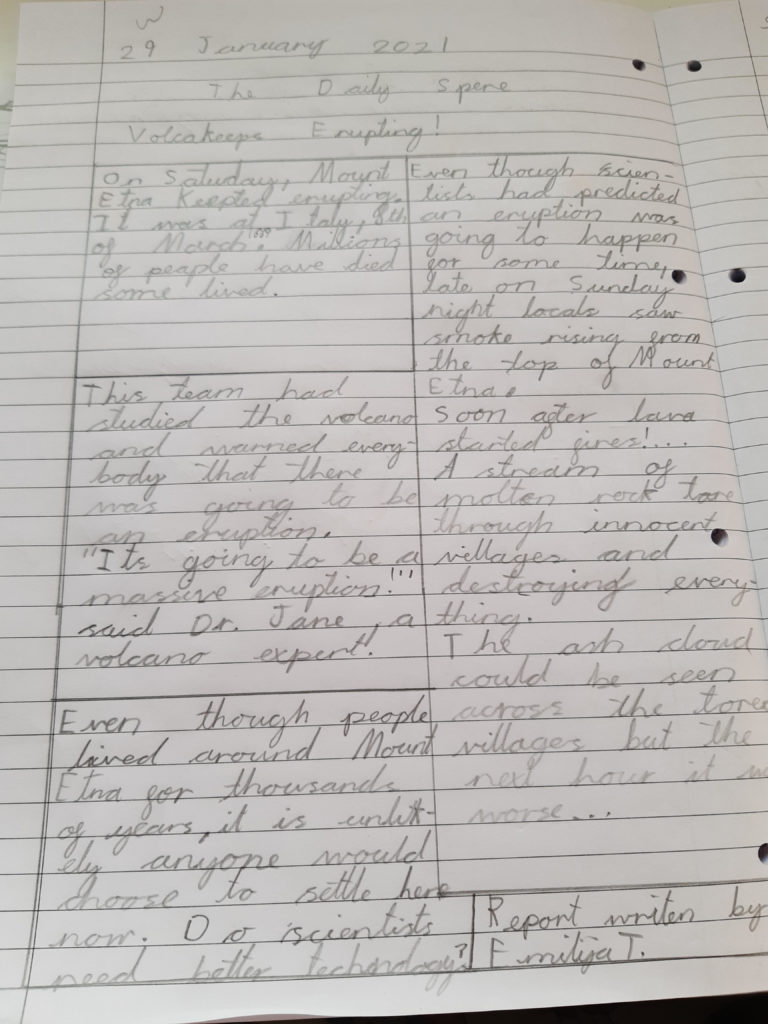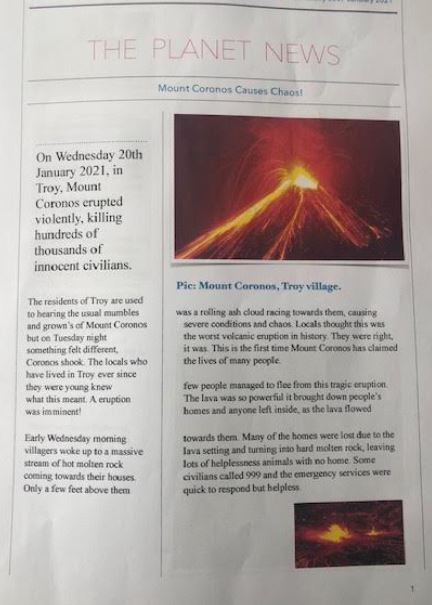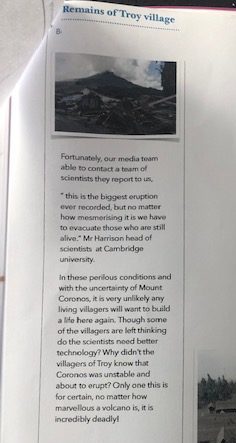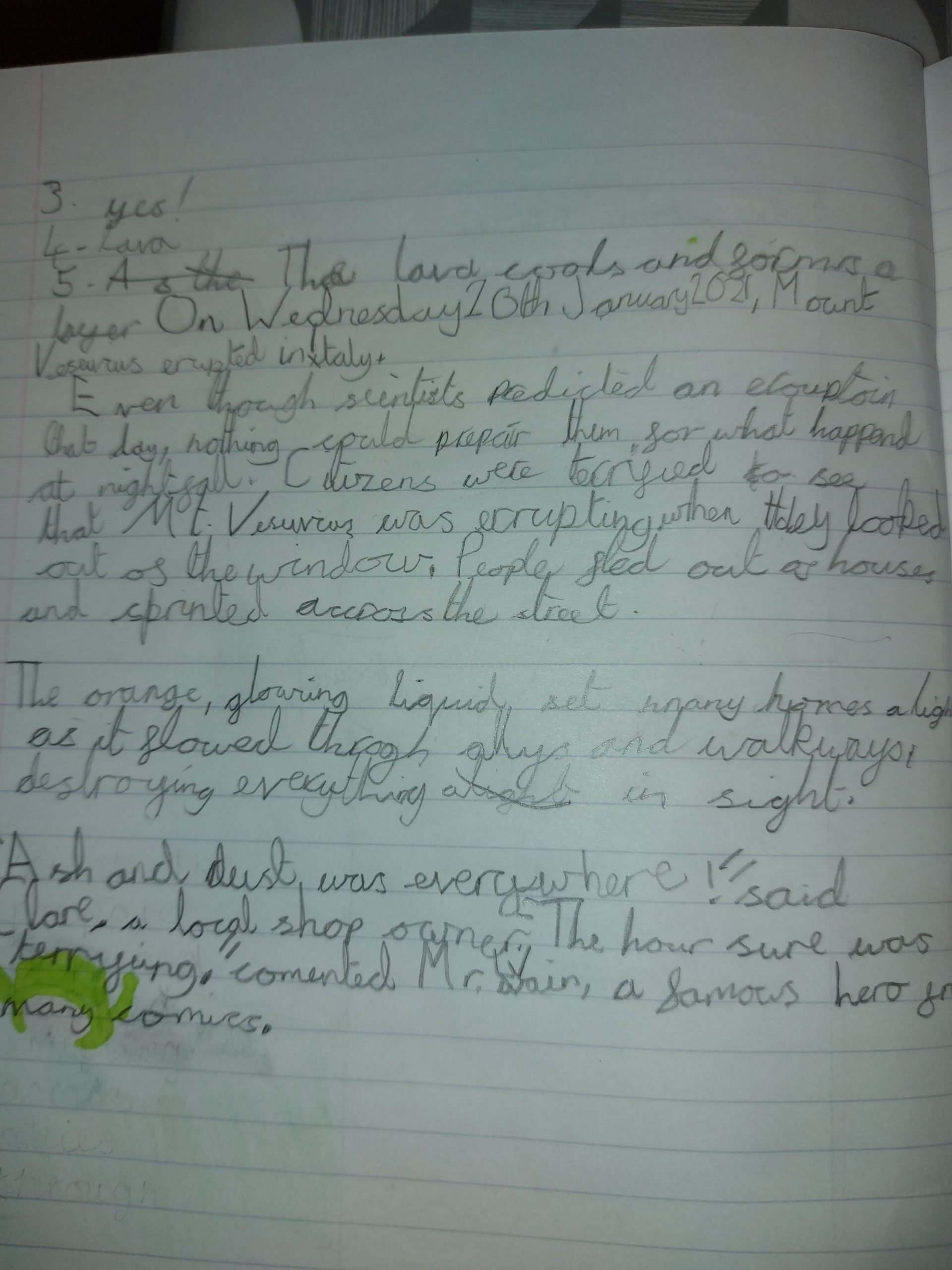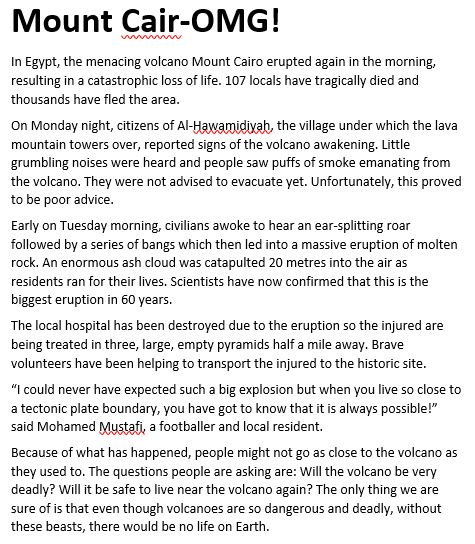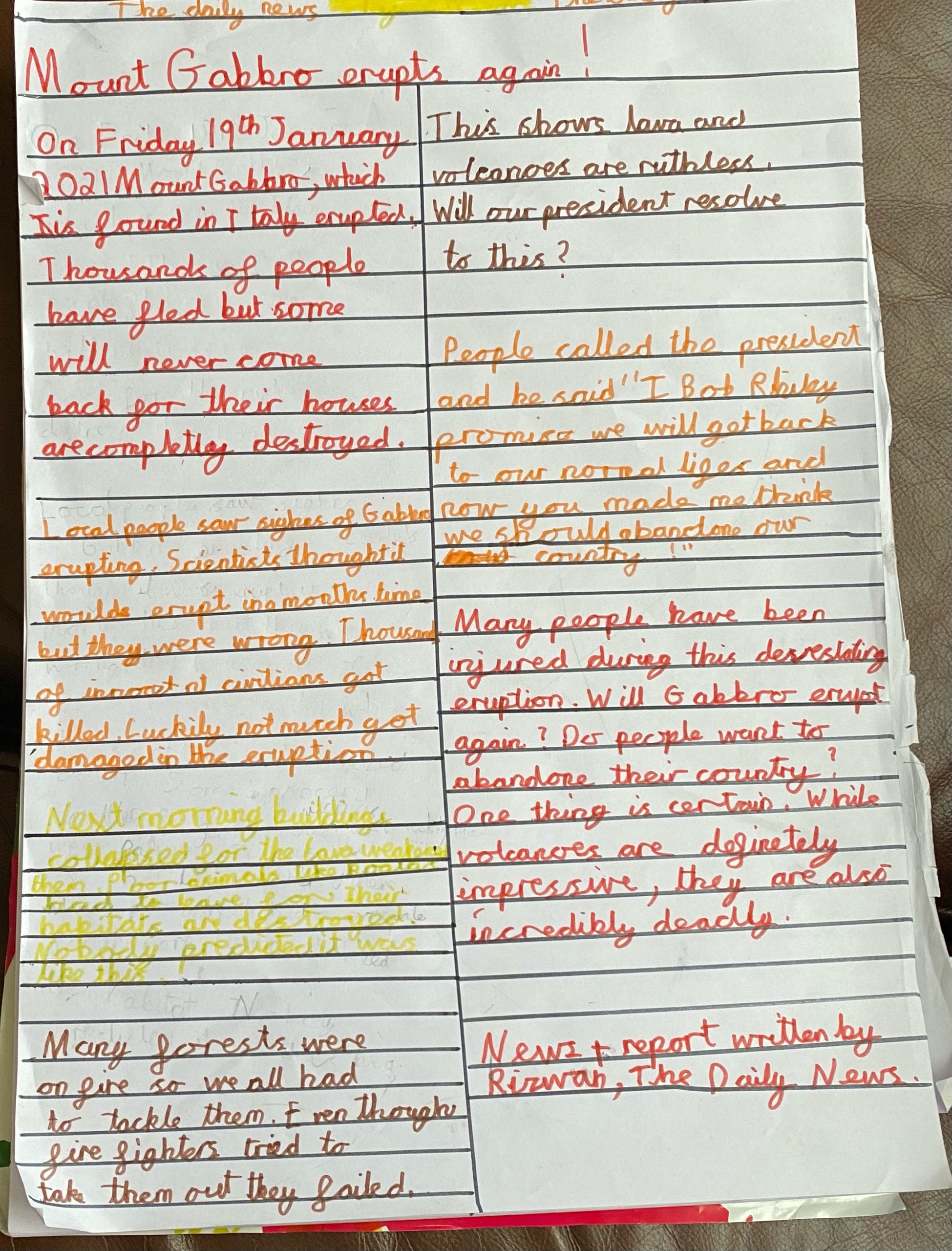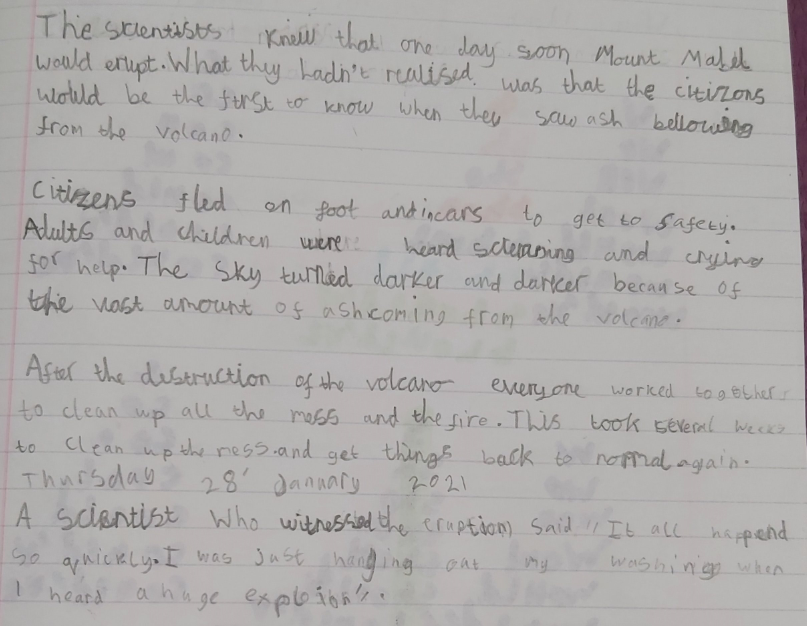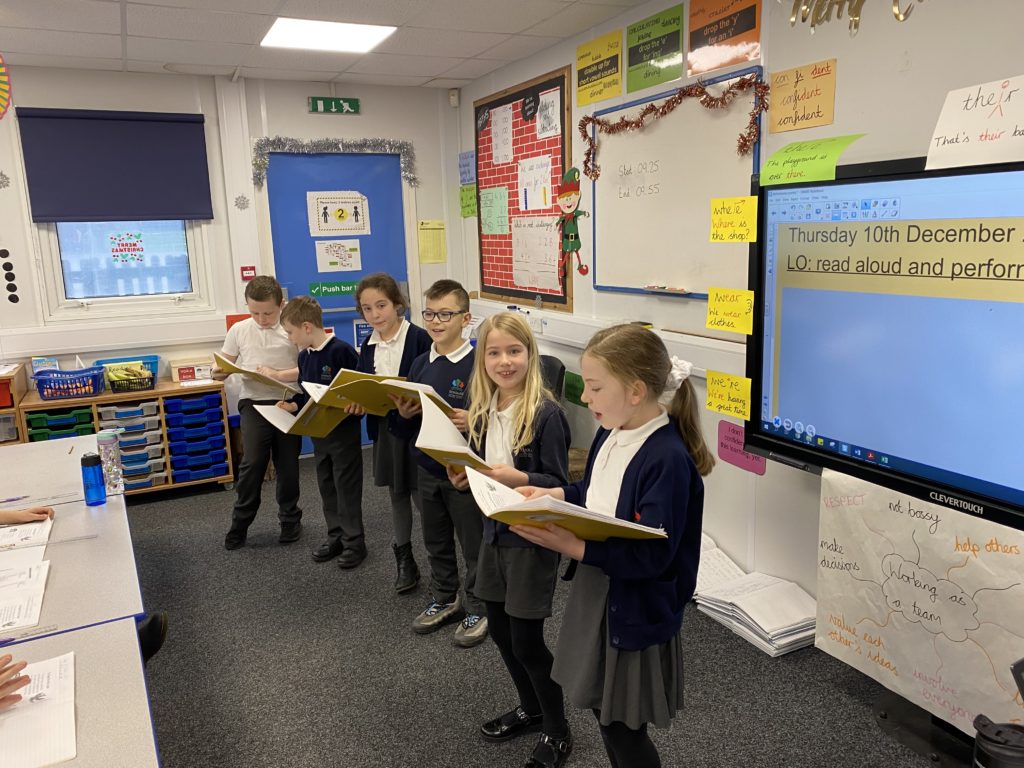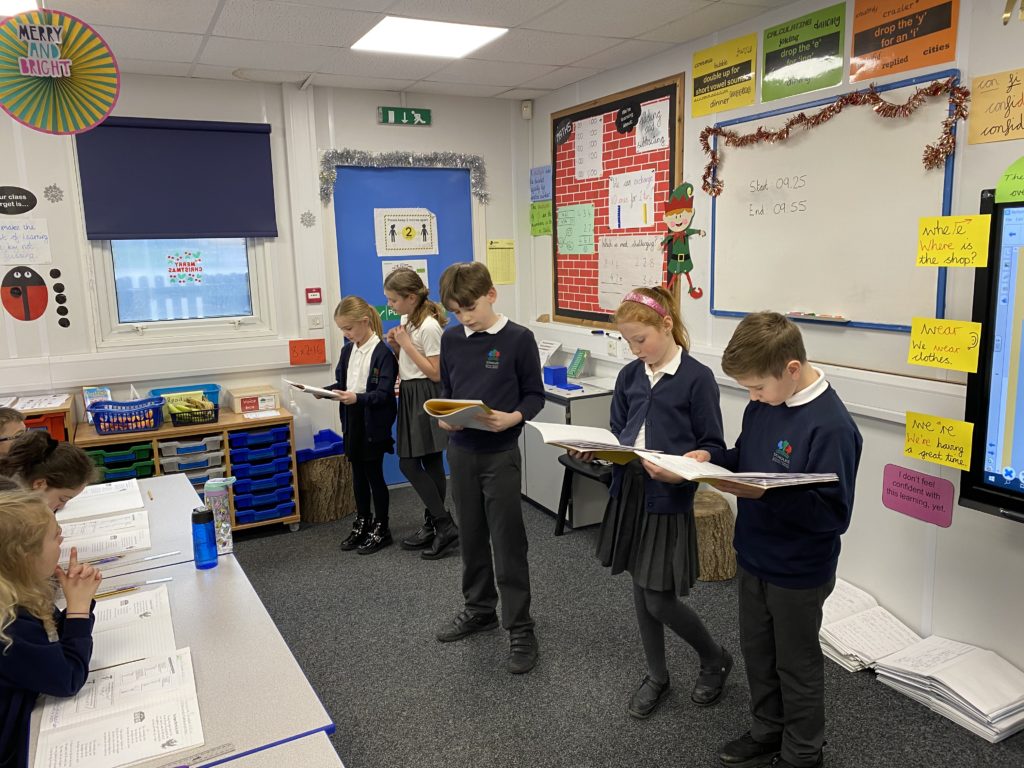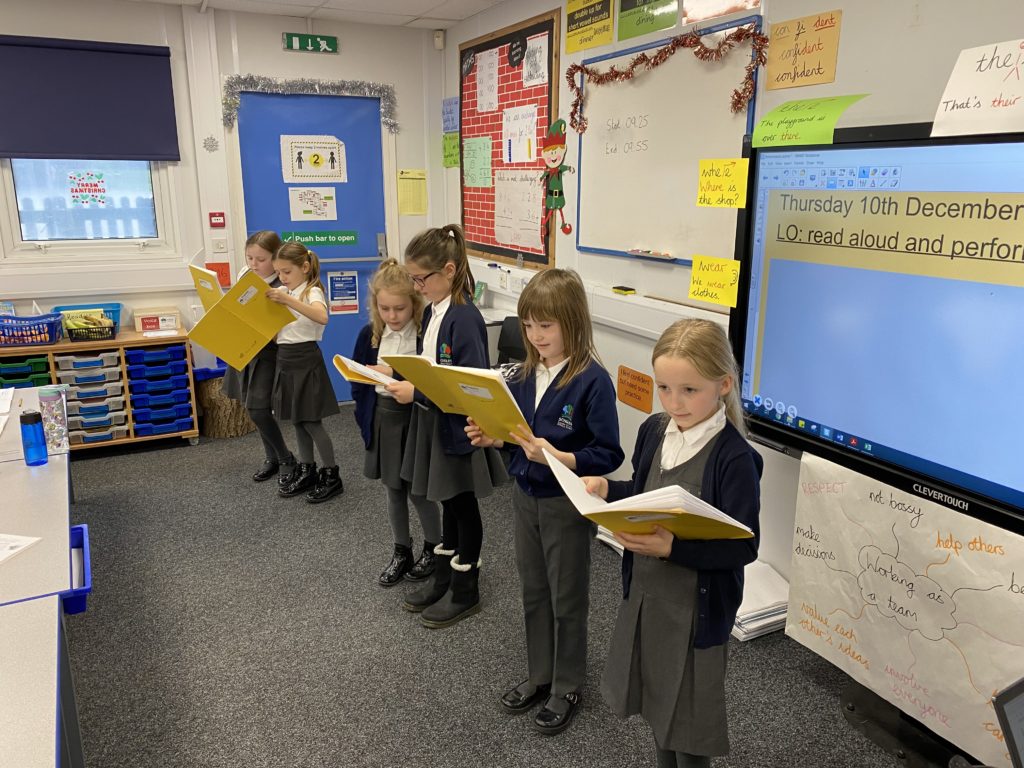Hi everyone
It’s the last week of school for 2020 – it’s certainly been an interesting year! In school, we’ll carry on with our learning but we’ll throw in lots of Christmas activities, too.
Before you start, here’s a short video from Mr Catherall.
And, here’s your learning for this week…
Maths
This week’s maths learning is a review week of what we’ve covered so far this year. You will have completed these lessons (or something similar) at school or home before – that’s OK and is intentional. We think this learning is super important and worth revising.
Year 4 children use these resources:
- Lesson 1: video, activity, answers
- Lesson 2: video, activity, answers
- Lesson 3: video, activity, answers
- Lesson 4: video, activity, answers
- Lesson 5: video, activity, answers
You don’t have to print the worksheet. Your child can write or draw their answers on paper. Your child’s learning will be most effective if you sit with them to pause the clip and check / praise / support your child as the clip moves on.
Practise times tables on Times Table Rockstars, too. If your child is in Y3, we’re concentrating on the 3 times table. If your child is in Y4, we’re concentrating on the 8 times table. Email the class teacher if you need your child’s login and password details.
(Suggested time: 30 minutes of Maths and 15 minutes of Rockstars daily)
Spelling
Look on the homework page to find this week’s spellings. They should choose some past spellings that they feel less confident with. Your child should complete one task each day.
- Day 1: Generate more words linked to the spelling pattern or ‘rule’. You could look out for the words in the book you’re reading at home, or any other text, like a website linked to our science topic of Living Things and their Habitat.
- Day 2: Practise the spellings using two of the ideas in our Super Spelling Strategies guide. (Set yourself and others at home a challenge of using some of the words when you’re speaking, too!)
- Day 3: Write separate sentences, each containing one of the spellings. (Don’t forget to show off really neat handwriting and make sure you sentence starts with a capital letter and ends with a full stop, exclamation mark (!) or question mark (?).
- Day 4: Repeat Task 2 or 3.
- Day 5: Get an adult at home to test you on your spellings. Practise any you spell incorrectly – you could write them out carefully until you’re sure.
(Suggested time: 15-20 minutes daily)
Reading fluency
This is the text we’re using in class this week to build up fluency skills.
In school, we generally follow this sequence:
- Day 1: Read the text aloud with your child listening. Read it clearly and slowly, pointing to each word as you read. Have a chat about any unfamiliar words.
- Day 2: Read aloud each sentence (a full short sentence or part of a longer sentence), and have your child read it back to you. Do this ‘echo reading’ for the whole text.
- Day 3: Read the text and talk about the effect of the punctuation on how you read it – pauses for full stops and expression for exclamations (!) or questions (?). Your child reads the text aloud.
- Day 4: Read together with expression (just like you practised on Day 3).
- Day 5: Your child reads independently and fluently.
(Suggested time: 15 minutes daily)
Reading comprehension
Day 1: We’ll be using this ‘RIC’ text in class to practise comprehension skills. RIC stands for:
- Retrieve: finding information in a text
- Interpret: using clues in the text to unlock information
- Choice: thinking about the author’s choice of words, techniques or organisation that make the text interesting and enjoyable to read
Day 2: Agree with your child three words from any text they’ve read which they’re less familiar with. Your child should find out what they mean (eg by checking an online dictionary or simply discuss with you) and how to use them in sentences (both when speaking and when writing). Challenge your child to write a sentence with each word in, or to drop the words into conversations at home.
Day 3: Read this article from First News, a newspaper for children, and complete the activity.
Day 4: Read your fluency or RIC text again. Next, do one of the following:
- Your child could list at least ten facts they’ve read in the text. (If it’s a fiction text (a story), then the facts would be based on the story, like ‘Harry Potter picked up his broomstick’, rather than actual facts from the real world.)
- Your child could create questions and answers for what they’ve read. (For example, it could be a TV or radio interview based on what they’ve read.)
- Your child could create their own ‘RIC’ questions.
- Your child could draw and label a character or setting that they’ve read about.
Day 5: Book Club. Once a week, we have a relaxing lesson where we sit and read quietly, often with an adult. At home, we’d like you to read your favourite book or text, too. If possible, discuss the book with an adult, talking about some or all of the sections of this sheet.
(Suggested time: 30 minutes daily)
Writing
Follow these lessons on non-chronological reports from Oak National Academy. There’s a whole series of lessons, but start at Lesson 1 and work through, doing one (or maybe even two) each day. (If you’re self-isolating in your second week, stick with the series of lessons you’ve already started and aim to complete the full series.)
(Suggested time: 30-40 minutes for each)
Topic
Our topic this half-term is about history – all about Ancient Greece.
Follow these lessons on pre-historic Britain from Oak National Academy. There are ten lessons in total, but start at the first lesson and work through, doing two or three in the week.
(Suggested time: 30-40 minutes)
Science
Our focus this half-term is sound.
These six lessons from Oak National Academy link closely to what we’ve been doing in class. Start at Lesson 1 and work through, doing two or three in the week. If you’ve previously completed on of these lessons, have a go at the ones you haven’t completed yet.
If Science really motivates your child, you could also use look at these lessons all about practical Science.
(Suggested time: 30-45 minutes)
PE
Don’t forget to do some daily exercise!
Do two or three of these Five Minute Moves from Joe Wicks each day – spread them across the day as if they were playtimes, maybe!
Try working through this series of 25 lessons from the Association for Physical Education – do two or three in the week.
(Suggested time: 5 minutes daily, plus 30 minutes for the longer PE lessons)
Extra stuff…
As an extra (or as an alternative, if this helps to motivate your child)…
Geography isn’t a topic-driver this half-term, but you could brush up on your locational knowledge – something that was missed when schools closed earlier this year. You could explore some online maps and try to memorise some new countries, capitals, rivers and mountain ranges. These three lessons about Europe are worth checking out.
What about some Living and Learning? While you’re away from school, you could check out these lessons on money!
